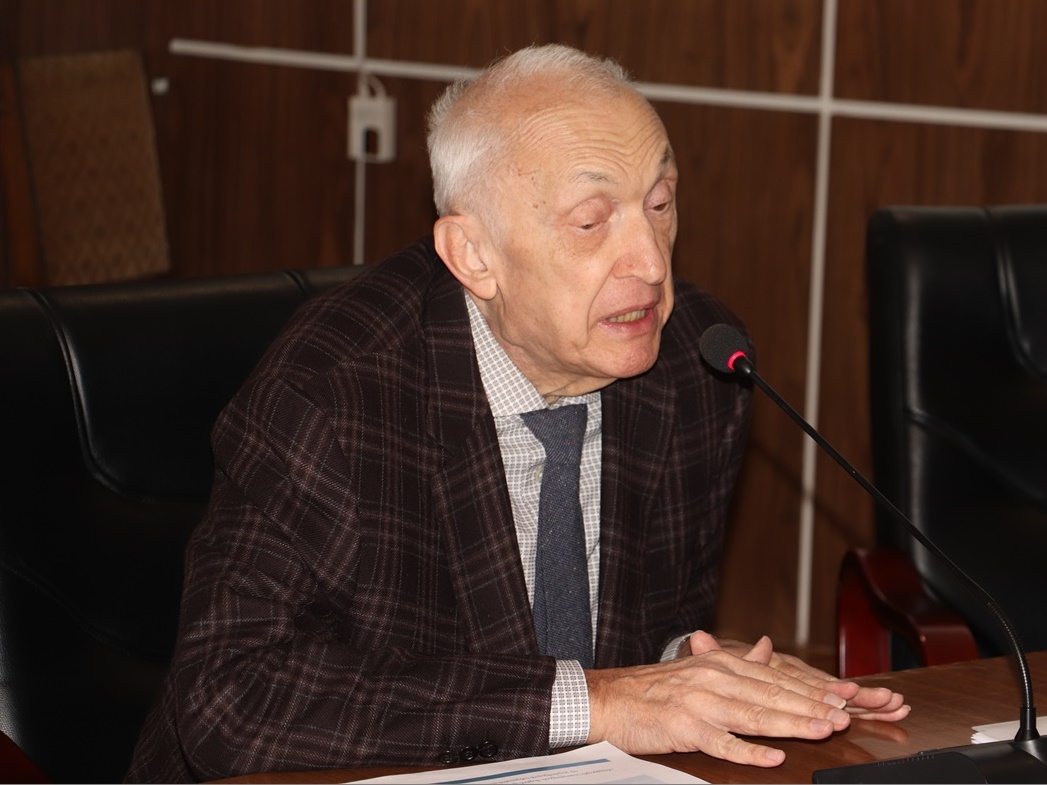
Infectious diseases in Georgia: main challenges and ways to solve them
- December 29, 2023
Professor Tengiz Tsertsvadze presented a report titled “Infectious diseases in Georgia: main challenges and ways to solve them” at the meeting of the Presidium of the National Academy of Sciences of Georgia. The speaker named infectious diseases as one of the most important public health problems worldwide. The latest data on the epidemiology, diagnosis and treatment of hepatitis B and C, HIV/AIDS, COVID-19, viral hemorrhagic fevers, respiratory infections, hospital-acquired infections and antimicrobial resistance were presented. Prof. Tsertsvadze noted that an unprecedented program to eliminate hepatitis C is being implemented in Georgia, after the successful completion of which, for the first time in the history of medicine, a chronic (and not acute) infectious disease will be eliminated not through a vaccine, but through drug therapy. Within the framework of the program, about 85 thousand patients with chronic hepatitis C have already been cured. No other similar health care program has been implemented in Georgia, which could save the lives of so many people. As of May 2022, Georgia was one of the first in the world to transform Covid-19 from a fatal infection into one of respiratory infections, which means that its mortality rate does not exceed or slightly exceeds the mortality rate from influenza and other infections. COVID-19 no longer has a negative impact on the quality of life of people and the economic situation in the country. However, it was emphasized that hospital-acquired infections and antimicrobial resistance remain serious problems in the country. Reducing the harm caused by these diseases is a priority area of health care.
